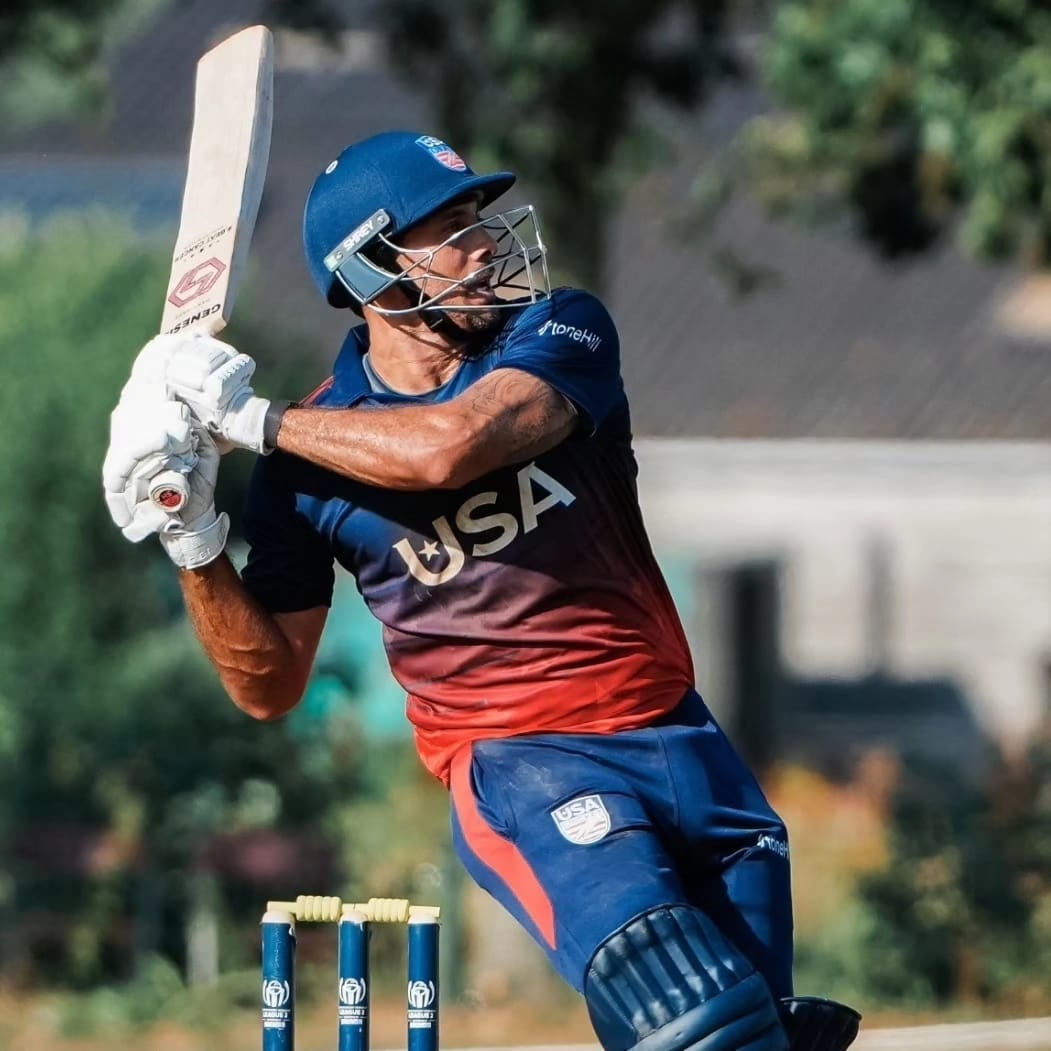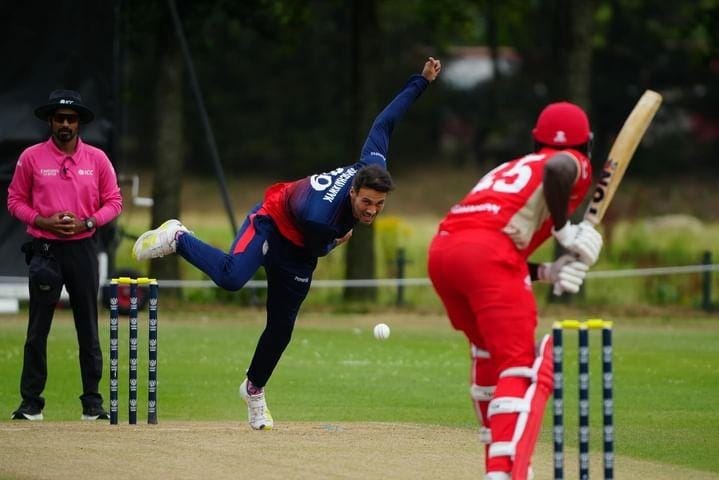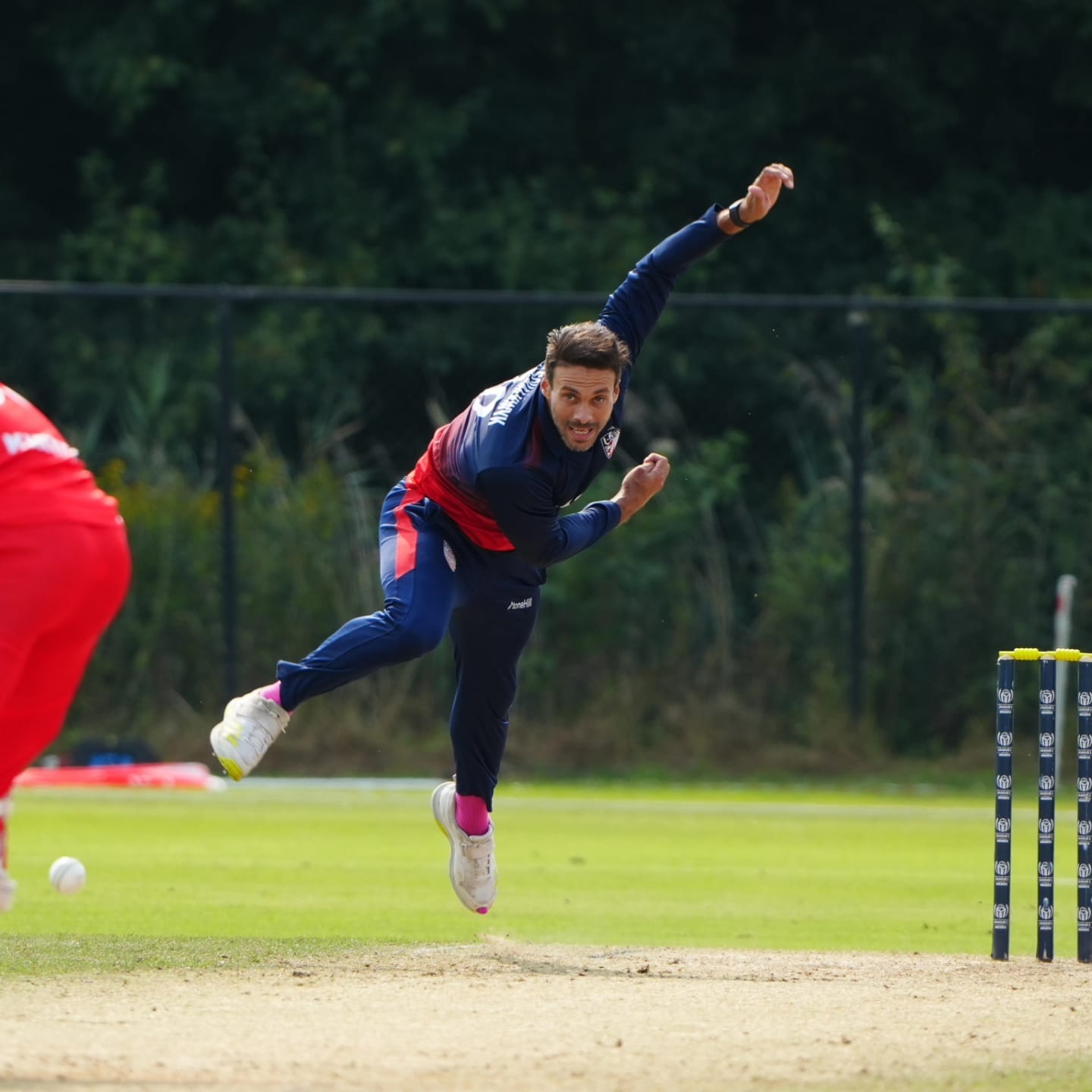Thank you for reading 438 & Beyond. If you like what you read, please click the button below, join the mailing list for FREE, and share on social media, through e-mail, or however you feel comfortable sharing.
Please consider becoming a Patron or buying a coffee to support this project and keep things going.
"Shot!" A voice cut through the noise of balls, bats and chatter. It was one of the other coaches. He was working on batting with a teenager. The teen had executed a backfoot drive with panache after a few attempts. In another lane, another coach was going through the mechanics of spin bowling with a 14-year-old girl. The Major League Cricket Academy Seattle (MLCAS) is a constant hive of activity.
Shadley van Schalkwyk stood in a lane with another student. The young man had a problem, he had failed an academic test and was worried about his grades, and he couldn’t focus on his drills, as a result. What struck Van Schalkwyk wasn’t that the teen had failed, but it was what the youngster considered failure.
“He had returned an 80% mark in a test. Most of the kids who come to the Academy are high achievers. Like many others, he’d never failed the subject, never got less than a B, like B is the lowest mark for most of these kids,” Van Schalkwyk explained.
For Van Schalkwyk, the issue wasn't that the boy considered an 80% mark failure, he identified something bigger that required his attention. “They don't know how to fail at anything. So they take failure a lot harder. They take a lot longer to get over failure. They don't fail at school and don't fail in the other sports because all they do is go to school and play cricket,” he shared.
Henry van Schalkwyk lives vicariously through people with opportunities he was never accorded as a young man. He never misses a televised Springboks rugby match. If it starts at 3 am, he wakes up at 2:30 am.
As a youth, Henry lived a life governed by limitations. Despite being a talented athlete, his sporting career could never go beyond playing at club level. He played for Temperance Rugby Club and Kenilworth Cricket Club (now known as Western Province Cricket Club). His athletic career could only go so far.
In their father-and-son conversations, Henry does not talk about how good he was, Van Schalkwyk learned that from listening to the people who watched him in his youth. Henry speaks of his experiences. How every weekend, he and his friends pushed a wheelbarrow to a vacant piece of land that acted as their cricket field and they unfolded a mat that acted as their pitch.
“My dad has a scar on one of his eyebrows. He got hit by a ball off a length because there were no rollers. So there were stones under the mat, and the ball hit the stone and took off,” Van Schalkwyk shared.
Henry and his friends had no helmets and some of them had bats that were no different to Van Schalkwyk’s first bat. Its shoulders were unequal. It was a handmade bit of equipment carved for him by Uncle Victor. Victor wasn’t a biological relative of the van Schalkwyks, he and his wife Aunt Mary looked after young Shadley van Schalkwyk when his parents were at work.
“He was a carpenter and he decided to make the bat for me when he saw how much I loved the game,” Van Schalkwyk shared.
By his admission, van Schalkwyk was not outstanding at cricket. He never survived beyond facing three deliveries in street cricket and stuck around in club cricket because his club did not discriminate on ability. Aware of his limitations, van Schalkwyk played with no big picture in mind.
His attitude changed at a rugby game. Van Schalkwyk’s memory is fuzzy on the details of what he had done, however, he is certain that he had made a sloppy move in a rugby game and Henry sat him down after the match.
“I can’t remember the exact words he said, but the core of it was that unlike him, I was lucky to grow up in a system that allowed me to make it if I worked hard enough. He told me, ‘If you do something, do it properly. If you go in for a tackle, do it properly. Don't don't waste your time away,’” Van Schalkwyk explained.
He didn’t realise it at the time, but that was the moment he started failing forward.
The saying goes: everyone loves a good busker because their music creates a wonderful ambience. However, for the busker to keep busking, someone needs to put some money into the hat.
I am a busker and this is my hat:
“Having a bad game, losing a match or bowling a bad spell. That’s not failure. Those are setbacks. Failure is when you give up. It’s when you are unable to deal with your setbacks,” Corrie van Zyl shared.
That was one of the first lessons Van Schalkwyk learned when he arrived at the Knights. He was 20, buoyed by the excitement of youth, with a head full of dreams and ambitions. Like many young men of his generation, he felt that his SA U19 selection put him ahead of everyone else and he deserved a professional contract and respect.
He had spent a season with Western Province carrying drinks and was eager to show his worth on the field. His big dreams were dampened before he pulled on his new franchise’s kit. In their first meeting, Van Zyl asked Van Schalkwyk three questions: ‘How will you break into the first XI? How are you going to be a part of this team? How are you going to add value to this franchise?’
Van Schalkwyk responded that he would be the hardest-working bowler on the squad, the fittest person on the team, and the fastest bowler. However, being fit and hard-working are prerequisites for professional sportspeople and Van Zyl didn’t need another 145km/h bowling pacer. He had three already.
“He told me that he needed guys who bowled variations, guys who could take pace off the ball, guys who could drop the ego a little bit,” Van Schalkwyk shared.
In 2008, having one or two slower balls was enough for a player, and in keeping with the times, Van Schalkwyk had one good back-of-the-hand delivery and a far-from-perfect leg cutter. Over the next three years, Van Schalkwyk grew his repertoire through trial and error on the field, against opposition batters who hit him all over the park.
“Shadley is your regular 120% player. That’s why we had him in our first-class team early. He gave his all on the pitch and in the nets. His willingness to learn was the reason he always bounced back from a setback,” Van Zyl shared.
That commitment made him almost impervious to the idea that he failed when he didn’t execute a delivery well or went for runs. Van Zyl also described him as someone who left his ego at home. This made him integrate easily into a team with several old-school players who believed that new players and youngsters owed them respect.
It also helped him find his feet easily after he moved to the US, with no concrete plan in place.
“I left a contract with the Knights to go to the US, where I had no contract on the table. I had to learn about my new environment as I was also proving myself to these guys,” Van Schalkwyk shared.
“These kids have more talent than I have ever had,” Van Schalkwyk shared.
When he started coaching the kids who came through the MLCAS doors, van Schalkwyk first assumed that his job would be to teach how to play cricket. It didn’t take long for him to realise how wrong he was. The landscape has changed so much from the time he broke through.
Besides the conversations he had with Van Zyl and a few senior players at the Dragons, Van Schalkwyk had learned through trial and error for most of his career. Besides having to learn his craft in a new city, with a new team, being over 1200kms away from his family meant that Van Schalkwyk had to learn to fend for himself. He developed survival skills while he was fashioning the mental skills to deal with failure in the same way that his father had during his day.
“It was a tough time, balancing my career and looking after myself, making sure everything was up-to-date - bills paid and stuff. It takes a lot. But, things are different now, these kids don’t necessarily have to go through what my generation went through,” he explained.
As he sees it, when he is coaching the youngsters who walk through the MLCAS does, his job is not limited to making sure that their technique is on point, middling the ball and hitting the target with their deliveries. His duty is to help them become well-rounded individuals.
“One of my biggest jobs is teaching these youngsters that failure is not the end of the world. I encourage them to fail forward. As long as they are failing and learning, I am happy. But if they keep bumping into the same issue for weeks, there is a problem,” he added.
Van Schalkwyk is still inspired to play and performs well for the USA national team, however, he finds a deep fulfilment when he helps future stars grow and develop into better young men and women.








